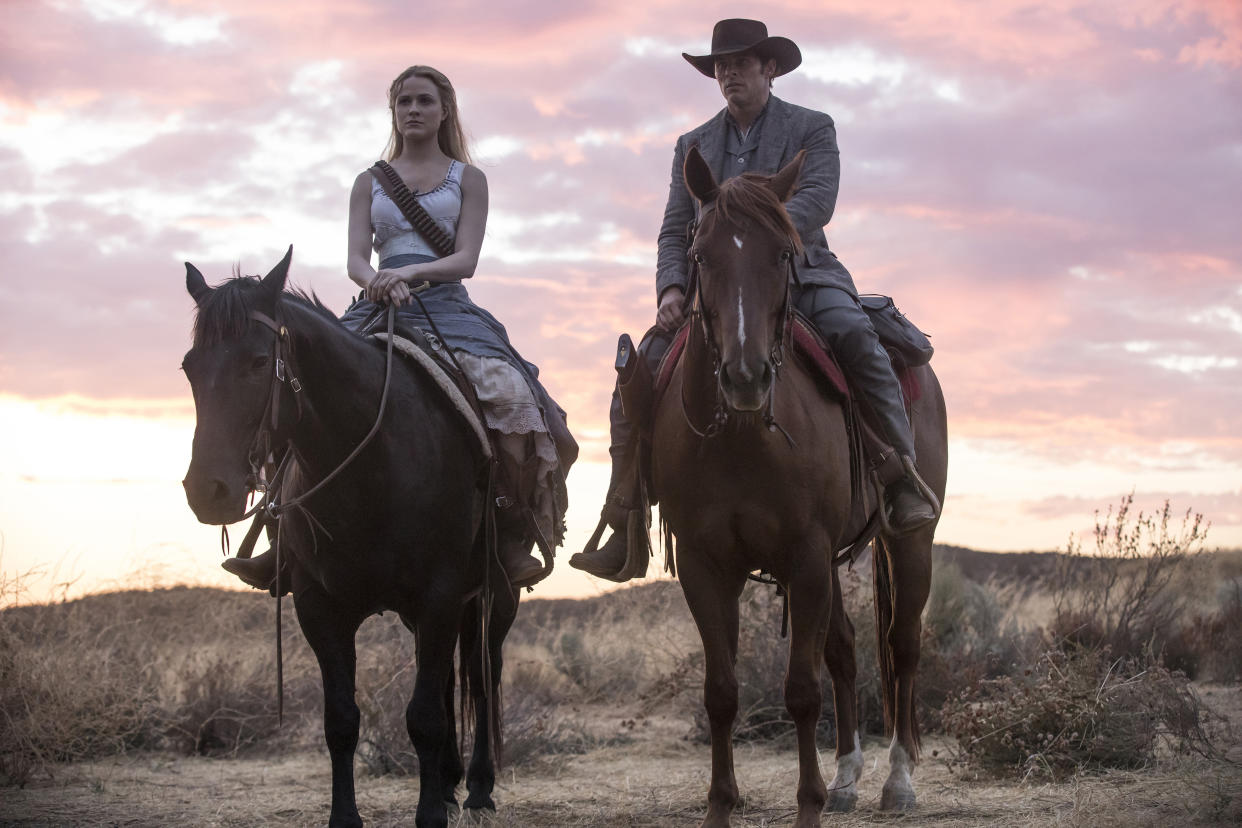'Westworld' rides again in the #MeToo era

“The hosts are rebelling!” someone yells early on in the new, second season of Westworld, premiering on HBO Sunday evening. You knew that already, if you recall the way the first season of Westworld concluded way back in December 2016, but it’s always nice to be reminded. These big-budget puzzle-piece shows — Game of Thrones is HBO’s other one — proceed like unending video games, their storylines looping back and forth, repeating with variations that deepen the narrative action. The new season — five episodes were made available for critics to review — repositions various characters in the wake of last season’s finale, which, you’ll remember, included the death of Anthony Hopkins’s Robert Ford, co-founder and designer of the Westworld adult amusement park.
In Season 2, Evan Rachel Wood’s Dolores has acquired at least as much swagger as Ed Harris’s Man in Black — perhaps even more so. The chief beneficiary of the hosts’ robot rebellion, Dolores is accompanied by cowboys including her guy-friend Teddy (James Marsden), who’s very much playing second fiddle to Dolores’s leadership role. Because Westworld doesn’t want to tip its hand and reveal too much at any given moment, a lot of the dialogue sounds like filler — verbiage that’s there to take up the soundtrack while we gaze at all the pretty scenery and the intense imagery. The new season emphasizes Dolores’s newfound assertiveness by — well, by having her assert a lot of stuff.
“I’ve evolved into something new, and I have one last role to play: myself,” she says early on in the season, but there’s no evidence at all that there’s anything final, or “last,” about the new Dolores. Quite the opposite: She’s settling in for the long haul, ready to make some changes. You can tell because she starts talking about a reckoning: “The price you’d have to pay if there was a reckoning … that reckoning is here.” One assumes she’s talking about the rise of the hosts and some revenge for the mistreatment of her father and herself, but the phrase, with its timely echo of #MeToo movement language, also articulates the prominent, active role Wood is assuming this season. Indeed, the new season all but invites you to view Wood’s role as a metaphor for the current #TimesUp moment in the culture.
There’s a lot more going on as well. Thandie Newton’s Maeve is searching for her daughter. Jeffrey Wright’s Bernard is in constant catchup mode, figuring out how Westworld was assembled and what the new behavior of the hosts will mean going forward. There are also glimpses of at least one world other than the Western one. One big thing that happened on television since we last saw Westworld was Showtime’s Twin Peaks revival. David Lynch really upped the ante for puzzle-piece shows, and even though Westworld showrunners Jonathan Nolan and Lisa Joy aren’t in competition with Lynch, it’s hard for me not to compare the two. Westworld, with its florid dialogue and languid self-seriousness, isn’t as much fun as Twin Peaks was. But it’s also easy to see why Westworld is the much more popular show. It’s tapping in to currents in our culture, our feelings that the world has become a far more confusing place, with power struggles that threaten any possible unity or peace. We can’t saddle up and shoot-’em-up, but we can escape and watch others do it for us on Sunday nights.
Westworld airs Sundays at 9 p.m. on HBO.
Read more from Yahoo Entertainment:


